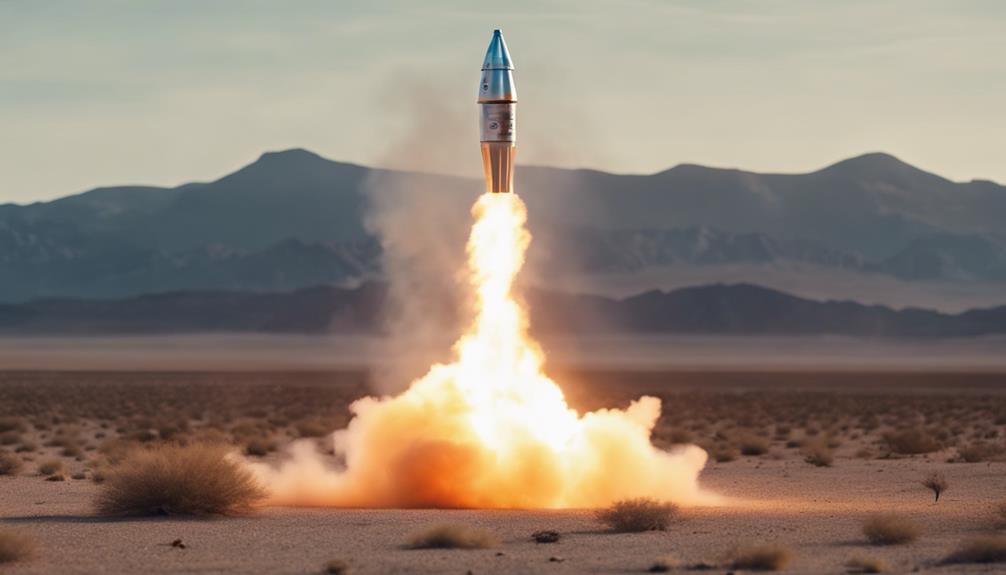On June 30, 2023, there was an explosion of a Blue Origin rocket engine during a BE-4 engine test at their West Texas facility, only 10 seconds into the operation. Thankfully, no injuries were reported among the personnel present. This incident has prompted a detailed investigation to determine the cause while also highlighting the risks involved in rocket engine testing. The explosion could impact upcoming launch schedules, especially for the Vulcan Centaur rocket. Industry leaders have shown a heightened emphasis on safety and reliability in the competitive field of space exploration, in response to this event. Additional details will shed light on the consequences of this occurrence.
Key Takeaways
- On June 30, 2023, a Blue Origin BE-4 rocket engine exploded during a test at their West Texas facility.
- The explosion occurred approximately 10 seconds into the engine's operation, with no reported injuries to personnel.
- An investigation has been launched to determine the root cause of the failure and assess safety protocols.
- The incident raises concerns about the reliability of the BE-4 engine, impacting future launch schedules for the Vulcan Centaur rocket.
Incident Overview
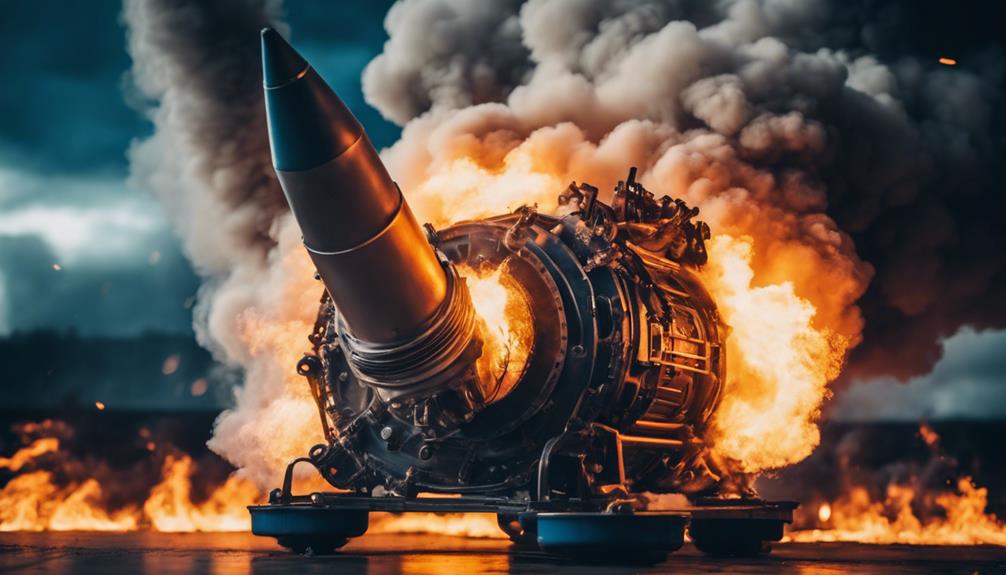
On June 30, 2023, a Blue Origin rocket engine explosion occurred during a test at the company's West Texas facility, approximately 10 seconds into the operation. The incident involved the BE-4 engine, which is part of Blue Origin's ongoing efforts to advance its propulsion technology.
Fortunately, no injuries were reported among personnel present at the site during the test. Following the explosion, Blue Origin has initiated a thorough investigation to assess the root cause of the failure.
This incident highlights the inherent risks associated with rocket engine testing and underscores the importance of stringent safety protocols. The company aims to determine the factors contributing to this explosion to prevent similar occurrences in future testing and operational phases.
Previous Failures
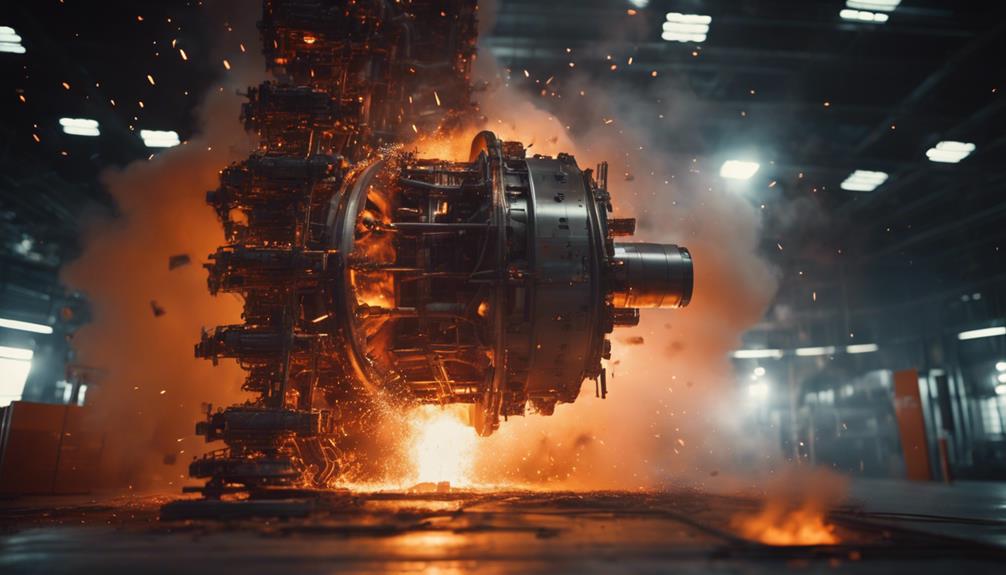
The recent explosion of the BE-4 engine is not an isolated incident, as Blue Origin has faced a series of setbacks, including a booster failure with the New Shepard rocket last year. These previous failures raise concerns regarding the company's safety protocols and reliability in rocket testing.
Significant incidents include:
- New Shepard Booster Failure: Led to an emergency landing without a crew aboard.
- Multiple Engine Test Failures: Previous testing phases have encountered critical issues.
- Delayed Development Timelines: Each setback prolongs the launch schedule and development of new technologies.
- Regulatory Scrutiny: Continuous failures may invite increased oversight from aerospace authorities.
These challenges highlight the difficulties Blue Origin faces in achieving consistent operational success.
Impact on Future Launches
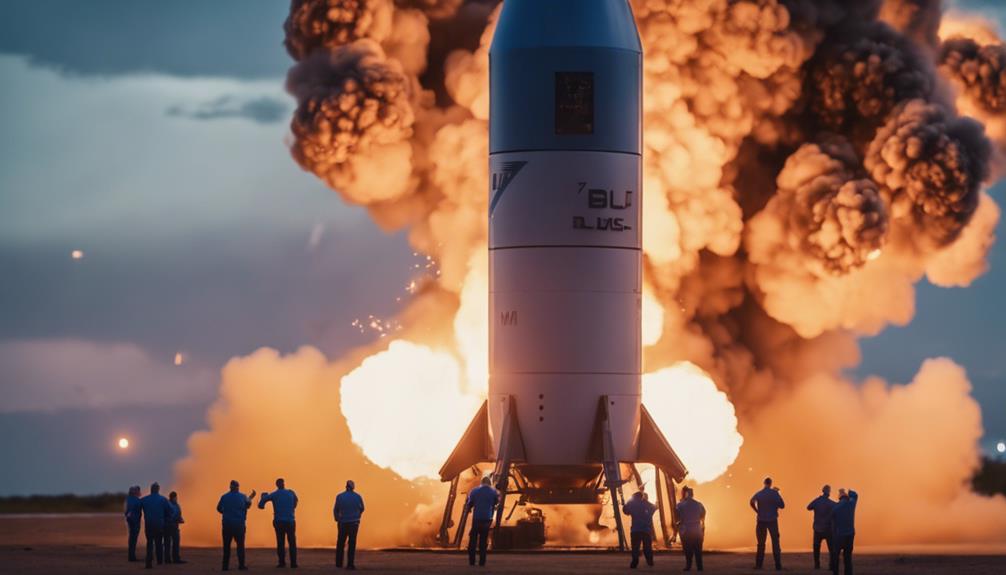
The explosion of the BE-4 engine poses significant challenges for future launch schedules, particularly affecting the anticipated deployment of the Vulcan Centaur rocket.
Originally slated for its debut on May 4, 2023, the Centaur's timeline is now under scrutiny following the engine's failure during acceptance testing.
The incident not only raises concerns about the reliability of the BE-4 engine but also threatens to delay subsequent launches, as the United Launch Alliance (ULA) re-evaluates their launch cadence.
With the Centaur launch now projected for late 2023, continued analysis and corrective measures are essential to restore confidence in Blue Origin's technology.
The successful resolution of these issues will be critical for maintaining competitive positioning in the rapidly evolving space industry.
Industry Reactions
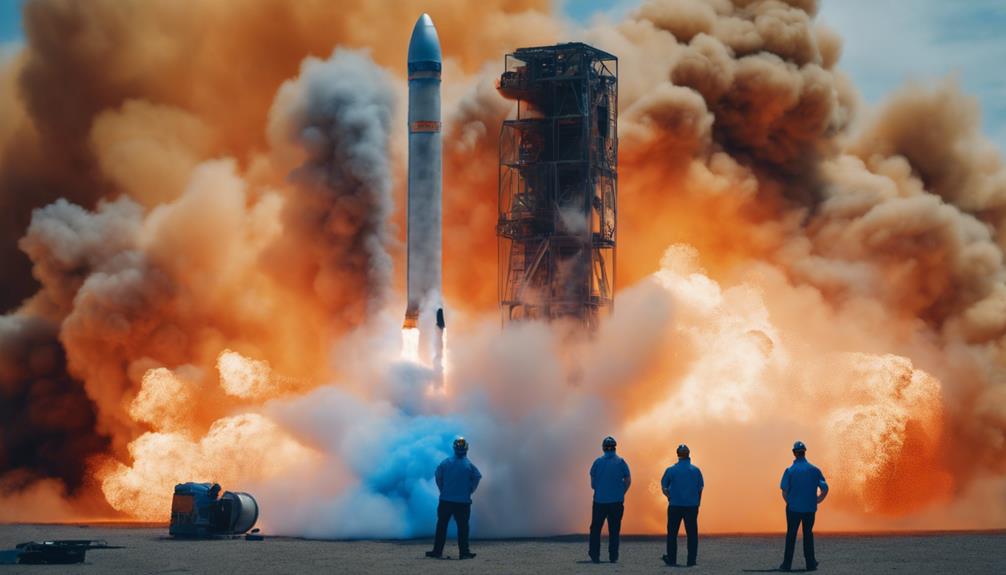
Reactions from industry leaders following the BE-4 engine explosion highlight both the challenges Blue Origin faces and the broader implications for the space launch sector.
ULA's CEO, Tony Bruno, acknowledged the incident on social media, providing reassurance that the failure is unlikely to affect the overall launch timeline of the Vulcan Centaur.
Industry experts are closely monitoring the situation, considering various aspects:
- Safety Protocols: Increased scrutiny on Blue Origin's testing and safety measures.
- Public Perception: Potential impacts on consumer confidence in space tourism.
- Market Dynamics: Competitive edge for other players in the space launch market.
- Future Innovations: Necessity for advancements in engine technology and reliability.
These reactions underscore the critical nature of maintaining safety and innovation in the aerospace industry.
Related Business Insights
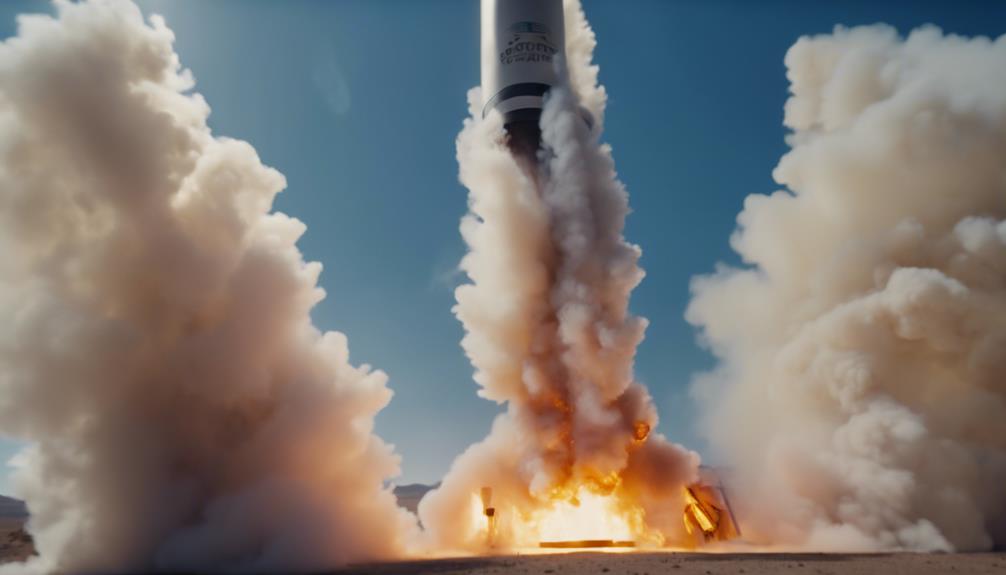
Amidst recent setbacks, the competitive landscape in space tourism has intensified, particularly following Blue Origin's engine explosion.
Virgin Galactic successfully launched its first commercial flight in June 2023, signaling resilience in the sector.
Despite Blue Origin's challenges, market interest in space exploration remains robust, driven by technological advancements and the allure of space travel.
Companies are increasingly focused on ensuring safety and reliability in their operations, as public perception greatly influences consumer confidence.
The incidents at Blue Origin emphasize the need for rigorous testing and quality assurance protocols.
Ultimately, the future of space tourism will depend on the ability of companies to deliver successful and safe launches, fostering a sustainable environment for growth in this emerging market.
Conclusion
The explosion of the BE-4 rocket engine at Blue Origin's facility underscores significant safety and operational challenges facing the company.
While previous failures have compounded concerns, the incident may catalyze a reevaluation of engineering practices within the aerospace sector.
The theory that increased competition, particularly from companies like Virgin Galactic, could spur innovation and stricter safety standards gains traction.
Ultimately, the resolution of these issues will be essential for Blue Origin's future and the broader trajectory of space exploration.
